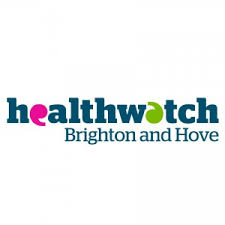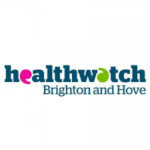A Brighton hospital trust asked interpreters to help mothers and mums-to-be more than 1,300 times in less than 12 months
Most of the 1,361 requests were for interpreters to attend appointments with community midwives (641) or ante-natal appointments (418).
But interpreters attended women in labour 123 times between April last year and March this year and they went along to 101 post-natal appointments involving Brighton and Sussex University Hospitals, the NHS trust that runs the Royal Sussex County Hospital.
The most common languages were Arabic (294), Bengali (198), Turkish (131), Hungarian (100), Polish (83) and Spanish (81).
Interpreters were also asked to help with Albanian, Romanian, Czech, Slovak, Lithuanian and Russian, French, Portuguese and Greek, Farsi, Hindi, Pashto, Tamil and Urdu, Cantonese, Mandarin, Korean and Vietnamese.
The figures came to light as Healthwatch Brighton and Hove, the local health watchdog, published the findings of research funded by the Community Spokes programme.
The “spokes” – or community and voluntary groups – relate to the Healthwatch “hub”, with the findings published last week. To learn more, click here.
Healthwatch Brighton and Hove said: “The reports identify the challenging health issues faced by vulnerable populations in Brighton and Hove.
“We believe the research highlights the need for health services to adopt a more proactive approach to serving these communities.
“Preventative primary care that adapts and is sensitive to the needs of these communities, we contend, is likely to have a significant impact on health outcomes as well lead to long-term savings for health services.
“The Community Spokes programme is a key part of Healthwatch Brighton and Hove’s commitment to engage with vulnerable people in the city and promote learning about health issues faced by these communities across the health sector.
“As an independent health watchdog, Healthwatch is uniquely positioned to reach out to these communities, gain an understanding of these issues and then use this to work for improvements in health services.
“The Community Spokes programme aimed to gain this understanding by funding community groups across the city working with vulnerable communities.
“The programme created a network of 17 community organisations which shared their insight into the health concerns and access to services experienced by the communities they worked with.
“Seven organisations were then invited to undertake more detailed research on specific issues. These projects involved close engagement with individuals ensuring that insights gained were a meaningful reflection of people in these communities.
“Healthwatch will be working in forthcoming months with partners in the health sector to review the findings and help improve services for these vulnerable communities in the city.”
In addition to the report by Sussex Interpreting Services on maternity services and black, Asian and minority ethnic (BAME) women, the project reports also involved
- Amaze with a report on adults and children with disabilities
- Brighton and Hove Impetus with a report on adults with Asperger syndrome
- Friends, Families and Travellers with a report on hidden Incontinence in the Traveller Communities
- Hangleton and Knoll Project, looking at health champions
- Parent Carers’ Council (supported by Amaze) with a report on BAME populations with children with special educational needs and disabilities (SEND)
- Right Here (YMCA Downslink), looking at young people with mental health difficulties
Amaze chief executive Rachel Travers said: “The project has helped us learn how important a personal approach to accessing information is to disabled young people, especially those with learning disabilities.
“Online information is of value, particularly when it is not based on written content. But many young people want to get information via their parents or other trusted people who understand their communication needs.
“Information is particularly needed on mental health and wellbeing, healthy relationships and accessible and inclusive leisure activities.
“Young people identified a number of barriers to establishing and maintaining a social life including bullying and not having enough opportunities to develop the skills to maintain friendships and healthy relationships.
“Amaze will be using the learning from the project and working with disabled young people to develop information, advice and support services for young people in Brighton and Hove.”








